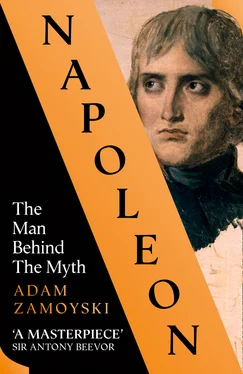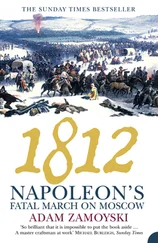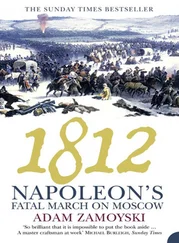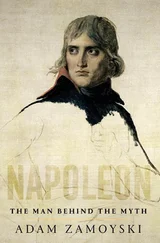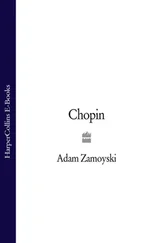The fruit was a novella entitled Clisson et Eugénie , no doubt in homage to one of his favourite novels, Bernardin de Saint-Pierre’s Paul et Virginie . Its hero, Clisson, feels the call to arms from earliest childhood, excited by the sight of a helmet, a sabre or a drum. At the age when others read fairy tales he studies the lives of great men; while others chase girls he applies himself to the art of war. He grows up to be an inspired young soldier who ‘marked every step with brilliant actions’, and quickly attains the highest rank. ‘His victories followed one after the other and his name was known to the nation as that of one of its dearest defenders.’ But he is the victim of ‘wickedness and envy’, having to endure the ‘calumnies’ of his peers. ‘They called his loftiness of spirit’ pride and reproached him for his ‘firmness’. Disenchanted, feeling out of place in social gatherings, he flees society, wandering remote forests and abandoning himself to ‘the desires and palpitations of his heart’ on moonlit nights, brimming with melancholy and self-pity. He meets Eugénie, who is ‘like the song of the nightingale or a passage of Paisiello [his favourite composer], which pleases merely sensitive souls, but whose melody transports and arouses passions only in those which can feel it keenly’. They fall in love, settle down and start a family, but after a few years he hears the call of duty from the endangered motherland and resolves to gird his loins once more. ‘His name was the signal for victory’, and his triumphs ‘surpassed the hopes of the nation and the army’. He sends one of his aides, his best friend, to console Eugénie in his absence, which he does only too well. When Clisson discovers that they have fallen in love he writes her a letter full of generosity and tenderness, and charges into battle and his death.38
The work requires little comment. It is a psychoanalyst’s feast with its display of emotional immaturity, dreams of glory, and sense of superiority combined with a desperate awareness of inferiority in some areas, with aggression coupled to a curiously mawkish sensibility, and total self-obsession.
On 17 August, having received orders to take up his posting with the Army of the West, Buonaparte called on Aubry’s successor at the ministry of war, Doulcet de Pontécoulant. The new head of military affairs was struck by the way the frail, sickly-looking man came to life as he spoke, his eyes sparkling with fire as he uttered the words ‘army’, ‘battle’ and ‘victory’. He appointed him to the Cabinet Historique et Topographique, a general staff consisting of twenty officers. Buonaparte applied himself with his usual single-mindedness, producing plans and memoranda on every aspect of the military situation, often staying up until 3 a.m. ‘When I work on a plan of campaign, I cannot rest until I have finished, until I have worked through all my ideas,’ he later explained. ‘I am like a woman in labour.’ He presented Pontécoulant with a plan for the conquest of northern Italy which when it was sent to the commander of the Army of Italy was rejected as the figment of a madman who should be sent to an asylum.39
The work did not distract him from more prosaic matters; he was looking at properties within easy reach of Paris, and had located one with ‘a very fine house’ whose drawing rooms, dining room, kitchen, pantry, bedrooms, garden, orchard, kitchen garden, fields, pastures and woods he listed for his brother’s benefit. ‘In any case, I shall buy it, because it seems to me that it cannot fail to be a good deal,’ he concluded. His confidence in being able to find the necessary funds may have had something to do with a revival of his marriage plans.40
‘I have friends, much esteem, balls, parties, but far from my sweet Eugénie I can have only some pleasure, some enjoyment, but no happiness,’ he wrote to Désirée at the end of August, urging her to join him, adding, ‘time flies, the seasons follow each other and old age advances’. To Joseph he wrote that he wanted to ‘conclude the business of Eugénie’, as it was interfering with his plans; he felt it was time he married, and there was no lack of willing women in Paris. ‘It is for her to sort things out, since she spoiled everything by her journey [to Genoa]. If she really wants it, everything can be easily arranged.’41
‘You well know, my friend, that I live only for the pleasure I can give my own family, happy only in their Happiness,’ he wrote to Joseph. ‘If my hopes are assisted by that success which never fails me in my enterprises, I will be able to be of use to all of you, make you happy and fulfil your desires …’ He was trying to obtain Joseph a consulate in Italy, and had managed to land Fesch a job provisioning the Army of the Rhine. He was sending Louis 300 francs a month: ‘He’s a good sort, and, also, just like me, he has warmth, wit, health, talent, attention to detail, all of it.’ He was pleased with the way the family was doing, and full of hope for the future. ‘I could not be better situated or have a more pleasant and satisfactory position here,’ he assured Joseph on 8 September. ‘The future should be held in contempt by a man who has courage.’ In between various proposals for speculating on property he returned to ‘the business of Eugénie’, which he insisted must be resolved. ‘If these people do not wish to conclude the matter of Eugénie, so much the worse for her, since she is stupid enough to listen to them,’ he wrote a couple of weeks later, making out that he would have done her family an honour by marrying her. He had better things to do than wait on them, and he crossed ‘ Eugénie ’ out of the title of his novella.42
He got wind of a project to send officers to Constantinople to modernise the Sultan’s artillery, and applied to lead it. As he explained to his brother, he would be in command of an important mission, he would probably be able to get him the post of consul, and they would make a deal of money. On 15 September 1795 he was confirmed in command of a military mission to the Porte. He selected Songis, Marmont, Junot and Muiron to accompany him on what promised to be the adventure of a lifetime. Yet a different adventure would change his plans.43
What really happened on 5 October 1795 remains a mystery. The events of that day, 13 Vendémiaire in the revolutionary calendar, were rich in consequences, not so much for the continuing course of the Revolution as for the future of one man – General Buonaparte. Yet it is his role in the events that is the most elusive.
While he was absorbed by his contradictory feelings for Désirée, his financial speculations, his military career and his dreams of oriental riches, a new political crisis had been brewing. The men who had taken power after the fall of Robespierre had provided neither strong government and stability nor any principles which could unite the nation. They reflected all the vices and uncertainties of a society that had lost its way. Jacobins lurked in the wings, and the more extreme such as ‘Gracchus’ Babeuf were plotting the ultimate revolution. At the opposite end of the scale, royalists mustered for a restoration of the monarchy.
On 8 June the ten-year-old son of Louis XVI died in the Temple prison in Paris. His uncle, the late king’s younger brother, issued a proclamation from Verona, where he had taken refuge, assuming the succession as Louis XVIII. Less than three weeks later the Royal Navy landed 4,000 émigrés in Brittany to support royalist insurgents. General Hoche, commanding the army in which Buonaparte should have been serving, forced them back to the Quiberon peninsula, where they and another 2,000 men landed by the British were defeated on 21 July. The following day peace was signed between France and Spain, whose invasion force had been driven back as far as Bilbao. The Republic appeared to be secure. But royalist feeling remained strong, and discontent with the existing government simmered on.
Читать дальше
